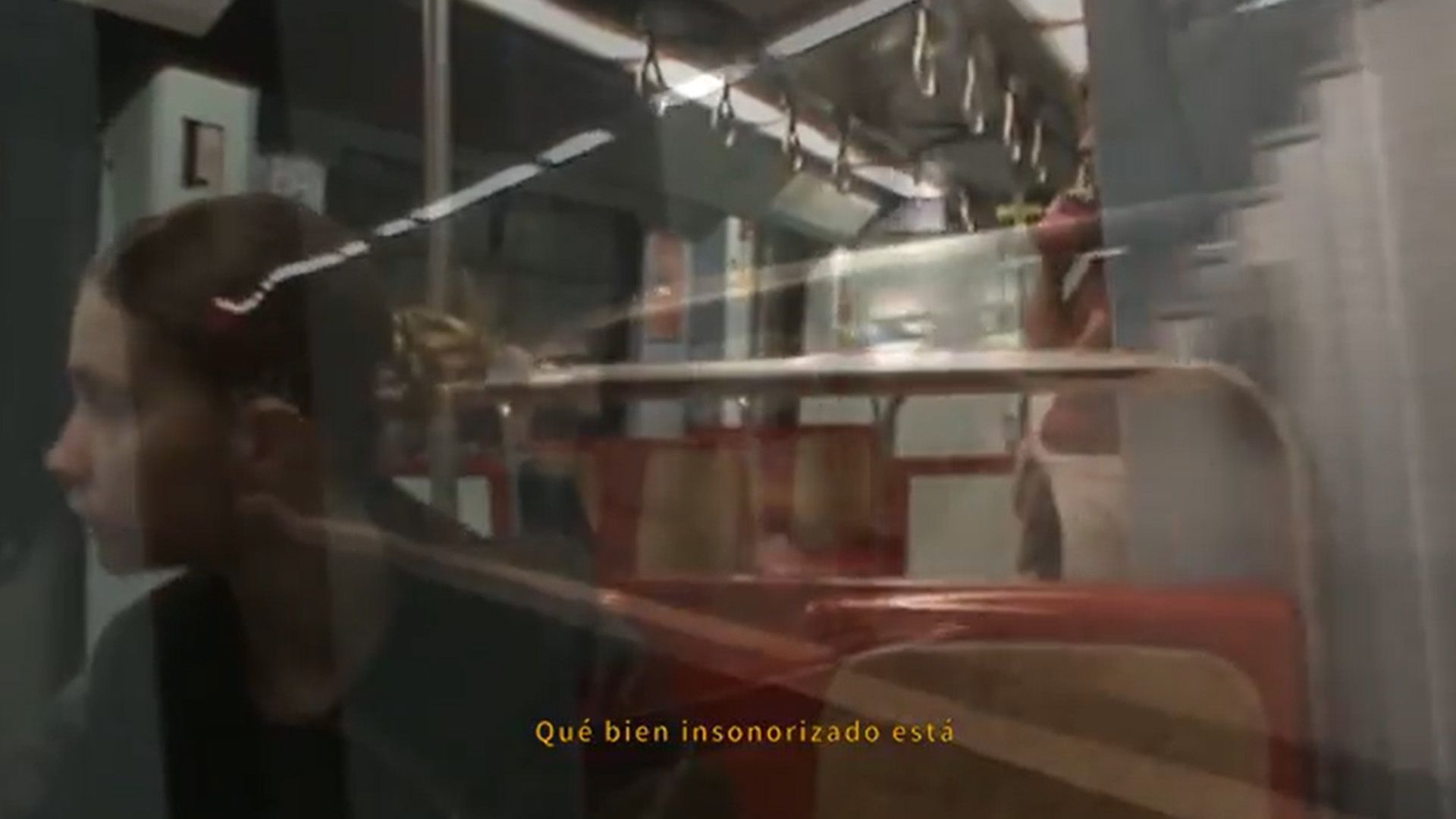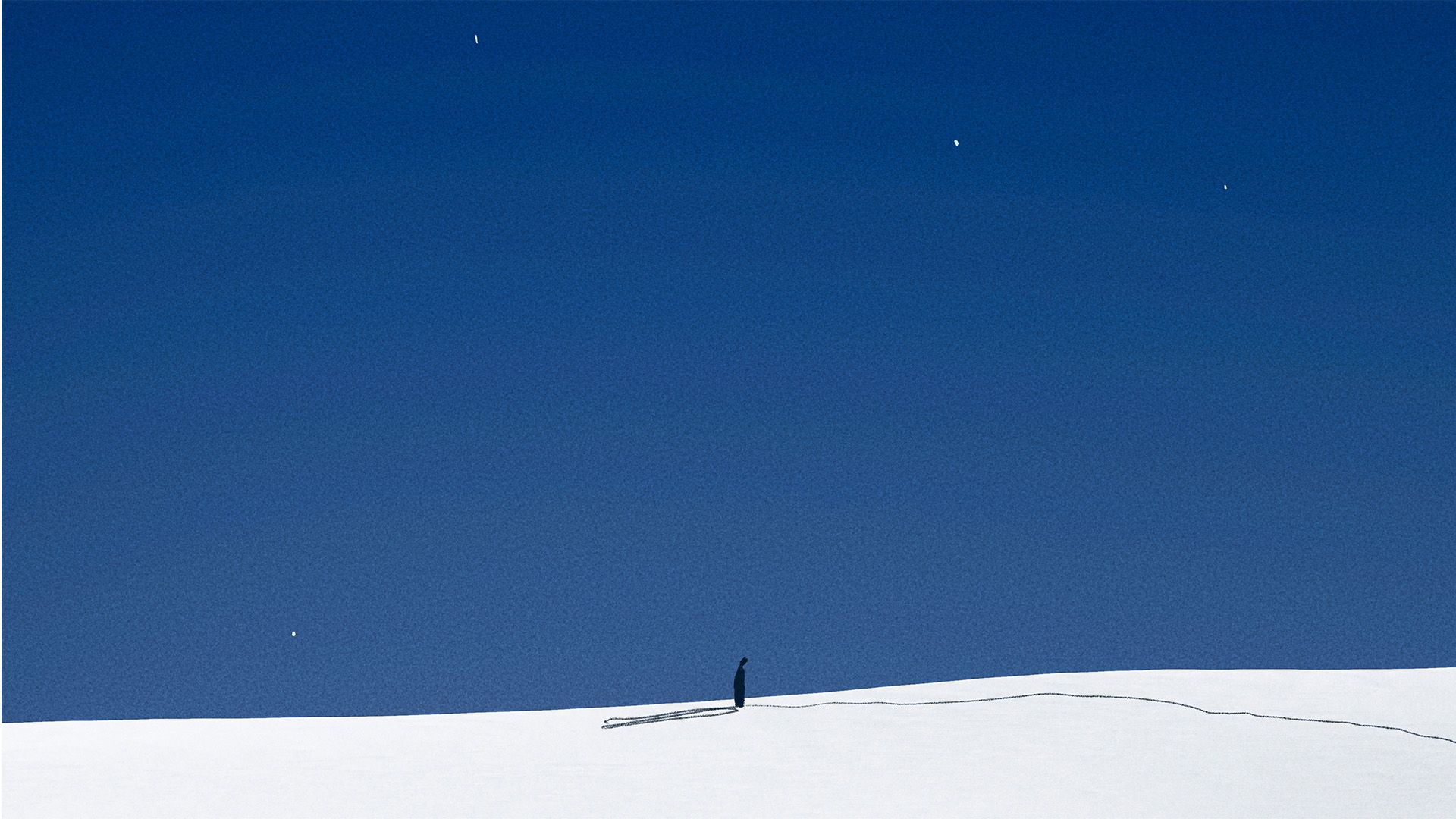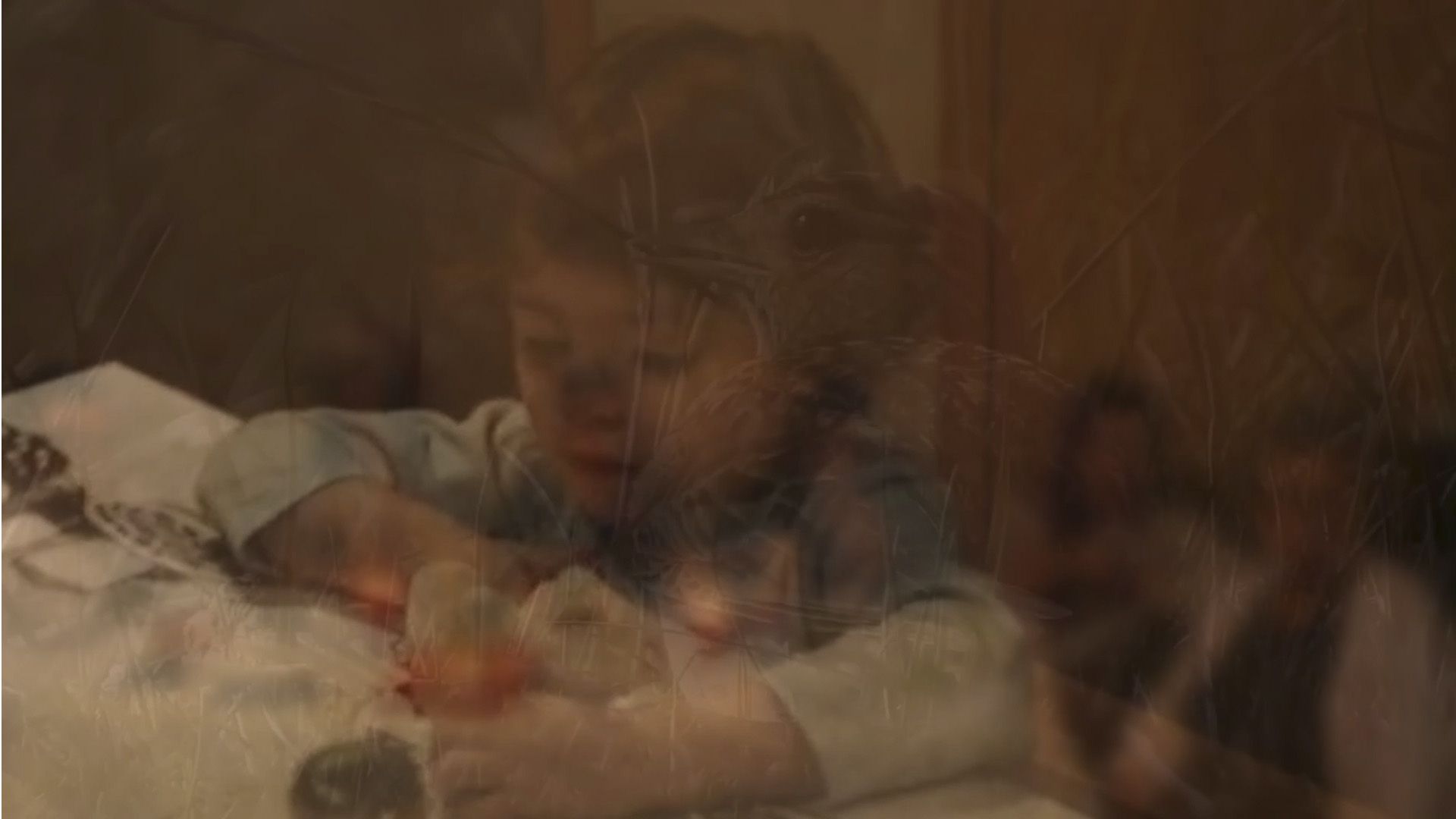PARAÍSO
FACULTY OF FINE ARTS (PONTEVEDRA) – UNIVERSITY OF VIGO
Filmoteca de Galicia | Friday June 7th | 11:00 am | Free entry to all venues until full capacity. It will not be possible to enter the venues after the screening has started.
The “Paradise” section brings together Fine Arts students attracted by the creative potential of the moving image, contributing their first suggestive discoveries. The gathering came about as a stimulus and a way to build bridges, and will take place this year in two sessions in which students from the Faculty of Fine Arts of Salamanca and the Faculty of Fine Arts of Pontevedra from the University of Vigo will be showing their films and fostering debate about them. Furthermore, this year the doors will also be opened to experimentation with analogue, artisanal and ecological cinema thanks to a workshop given by Franci Durán, Phil Hoffman and Robin Riad.

HOGAR Y RACIOCINIO (HOME AND REASONING)
Hector Pousa | 2024 | Spain | HD | 5 min
Hogar y Raciocinio describes a duality between the nearby landscape, home, as opposed to a foreign, distant, remote scenery. This is how nature acts as a concept of identity, where it not only works as a means for its own representation, but also plays the part of a mirror to a certain social and cultural context. It is a reflection not only of the nearby natural environment, but also of those scenarios not so close to us, where there is no complete knowledge of true reality. (Hector Pousa)

BANDHANGAL
Mayoor Baiju | 2024 | Spain | HD | 5 min
Despite the effort I made to take care of her and fix things, the storm became implacable, merciless, triggering a painful internal metamorphosis. The story describes my perspective of a relationship that ends when my partner, after months of crisis, borders on mental illness, finally crossing over to it and being admitted into a psychiatric centre. (Mayoor Baiju)

BOA VIAGEM
Eva Lareo | 2024 | Spain | HD | 7 min
I’m going on a trip with my friends to Lisbon. I take a Handycam with me and start recording all the pranks and experiences that happen to us there, from visiting museums to partying. I gather up these bubble moments and enjoy them with my friends, and I invite you, the voyeuristic viewers, to feel at ease and have fun with us. So enjoy the journey and… Boa Viagem! (Eva Lareo)

EXILIO (EXILE)
Álvaro Trigo | 2024 | Spain | HD | 4 min
In the village, the streetlights switch on at sunset and light up the cobblestone ground; the stray dogs hide away for the night; the smoke and ashes from the chimneys spread across the sky; and the cold shuts people away in their homes. Far away, in the wasteland, the sound of the blizzard mingles with that of an intruder’s footsteps in the snow. (Álvaro Trigo)

GOLONDRINAS (SWALLOWS).
Fabiola Quintela | 2024 | Spain | HD | 5 min
I like to think that the artist’s role is to avoid oblivion. Hence, this autobiographical essay was created as an attempt to embrace the past that I recognise in constant dialogue with our present. The poetry of the day-to-day, of childhood, and of interpersonal relationships, flourishes in the midst of mental images linked to the experiences that marked my childhood. Searching between frames to open up a window through which to observe and feel everything that I would like to make eternal: the love of a mother, the flow of passing time, or the flight of swallows when spring arrives. (Fabiola Quintela)

O NIÑO DA LAVERCA (THE LARK’S NEST)
María Martelo | 2024 | Spain | HD | 6 min
We all have our nest, which is built with love by those who help us grow. Nests, like people, are not eternal and a storm can alter or destroy what we took for granted. I came across a family recording of a New Year’s Eve dinner, when the home was still full. It is a window on the past, unrepeatable little moments of life that the passing of time snatches from us and that will never return. In this work I speak of a home in the process of change, of the calm after a storm, of a nest, mine, in reconstruction. (María Martelo)

FULGOR (GLARE)
Paula Pumares Silvosa | 2024 | Spain | HD | 3 min
A self-portrait in which I travel through my memories. Family, places and memories that merge with each other like waves in the sea, mixed with an enveloping atmosphere of colours and textures of the nature of the town where I grew up, forming a mental landscape full of nostalgia. (Paula Pumares Silvosa)
CURIOSITY, ENJOYMENT, PLEASURE, EMPATHY
FACULTY OF FINE ARTS (PONTEVEDRA) – UNIVERSITY OF VIGO
Once again, this year the Paradise section includes a selection of personal films made by students from the Fine Arts Faculty of the University of Vigo, and once again we shall see the strength of these early forays into audiovisuals. They are artworks with undoubted aesthetic sensitivity, born out of young impulses but polished with care. That is why they are capable of instilling in us such curiosity, enjoyment, pleasure and empathy. Cinema’s ability to pierce our senses and arouse emotions and feelings is used by these artists’ naturalness in working with their personal history. The life’s experience within their reach—or their cameras’ reach—can be introduced into their work.
There is an enviable creative freedom felt in these films of initiation. Cinema is just one of several artistic forms in which these creators express themselves, such that they include the moving image in their artistic work among painting, sculpture, drawing, photography, installations and performance.
The topics dealt with on this occasion range from the home, family, friends, loneliness, love…nothing new if not for the fact that each and every story is an individual one, and each generation writes its own. These seven works began as Audiovisual class exercises, a third-year subject in the Fine Arts degree, which has allowed me as a teacher to tutor their creation process and get to know each artist up close. In some way, that support is not only technical but also human, spiritual.
Hector Pousa tells us about his emotional geography in the Ría de Aldán coastal inlet; the interior landscape that is his very home, the sublime nature within his reach and which he knows best. He contrasts this personal mental imagery with the other one “that they give us to see” in the media, external and global, that deals with disaster and destruction, the Prestige or wars. Two opposing landscapes, two types of images—one’s own and those of others—in an evocative film titled Hogar y racioncinio (Home and reasoning).
Mayoor Baiju shares a painful love story in Bandhangal (Links) that he experienced upon his arrival in Galicia from India, his homeland; an experience that marked him severely. Faced with conflicts and the unexpected in life, the teachings of the Bhagavad Gita come to his aid and remind him that calm and serenity are the qualities that make it possible to connect with that wellspring of inner strength that enables human beings to love again after chaos and hopelessness.
Eva Lareo gives us fragments of a trip to Lisbon with her friends, who are artists with similar concerns and the same desire for the future to make a living from art. Boa Viajem reminds us of those first fraternal trips where one dreams, dances, laughs and discovers that one’s pals are our true family. It is a dynamic documentary work where the scenes follow one another with the fluidity of a coming-of-age travelogue: fun and energetic, calling for self-discovery.
Álvaro Trigo has chosen animation in Exile, drawing it frame by frame, to also tell us about a journey of transformation, but unlike the previous work this is a solitary journey, where silence and emptiness guide the protagonist through the snow. All in scarcely a few lines, a few strokes; wind and the echo of the character’s footsteps walking at night through a winter landscape. This reduction of the composition to the minimum visual and sound expression is a conscious choice while at the same time a stance regarding the artistic fact.
Golondrinas (Swallows) is a video letter of thanks to a mother. In her arms, Fabiola Quintela learned to contemplate the beauty of swallows every spring through the window of her house. Against the possibility of forgetting the memory, the creator has made an emotional film using domestic archives that enables her to turn the memories of her childhood into poetry and remember her family, immortalising the memory that she does not want time to take away. Nostalgia is the feeling that makes home movies continue to exist and be created anew eternally.
Another example of an archival autobiographical film is O Niño da Laverca (The Lark’s Nest) by María Martelo, which uses a recording of a family dinner as its central theme: a fixed shot of a Christmas table surrounded by diners, turning that typical scene into something formally interesting and original. Characters that are no longer here today, like a grandfather who called her “laverca” (lark) because his granddaughter was that attentive little talkative bird who spent all day singing. And the nest is represented by the home, today dismembered, to which that girl can no longer return.
Fulgor (Glare) is the film that closes this programme, which was also born out of that nostalgia of studying away from home and missing one’s town and family. Paula Pumares plunges us into a wave of abstract memories, images that play with light, textures of nature, sounds of the countryside, an amalgam of intertwined memories, people, places and moments that are significant and which she manages to articulate in a synaesthetic symphony.
Without a doubt, every year we see the ingenuity, tenderness and love that students are capable of projecting by making small, artisanal, intuitive, experimental films.
Xisela Franco
